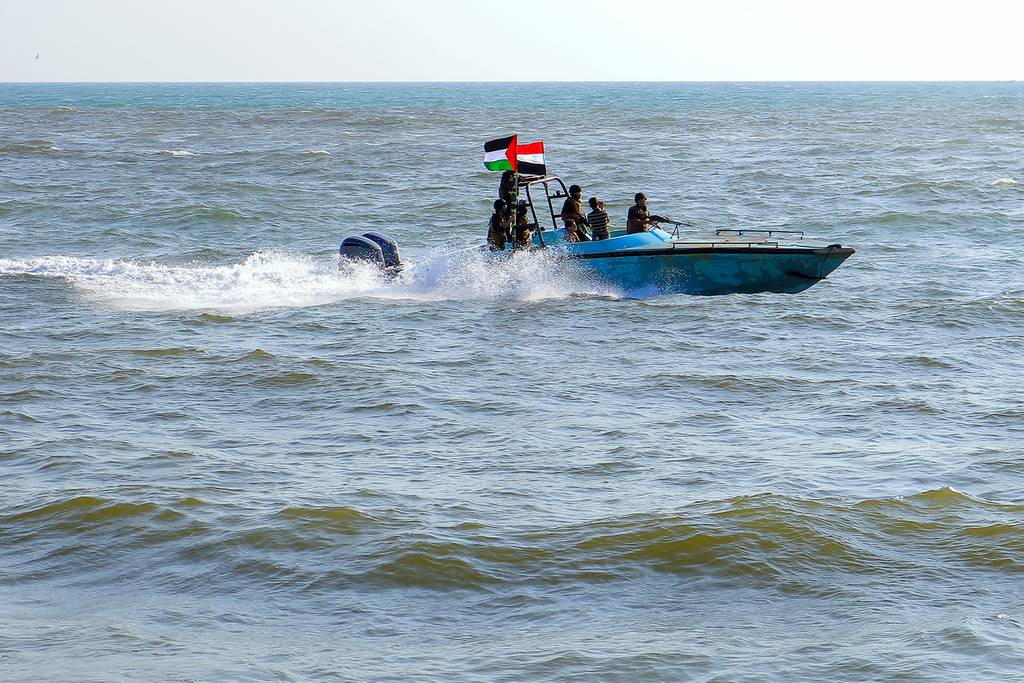SAN DIEGO — Threats by Houthi rebels based in Yemen to slice a lattice of undersea cables in the Red Sea region, jeopardizing communications and financial data, are unrealistic, according to the commander of the Office of U.S. Naval Intelligence.
Veiled threats were published on social media channels associated with the Iran-backed militant group in December and were later amplified by Hezbollah, according to the Middle East Media Research Institute. The posts featured maps of the area, including the Bab-el-Mandeb Strait, where fiber-optic cables run, and chatter about international connectivity.
Asked at the West conference in San Diego if he thought such threats were realistic — if extremists could execute such sabotage — U.S. Navy Rear Adm. Michael Brookes said: “I’m not so sure it is.â€
“The Russian Navy remains the greatest threat to the U.S. in the undersea domain,†said Brookes, whose organization collects, analyzes and distributes intelligence about foreign forces. Brookes was named commander in July.

The Houthis and other Iranian-armed militias have launched a series of attacks on commercial vessels and U.S. forces across the Greater Middle East in recent weeks, prompting the U.S. to respond with retaliatory strikes in Yemen and Iraq. Houthi forces have used explosives-laden unmanned systems in the air and on the water as well as anti-ship ballistic missiles.
Due to the confined geography of the Red Sea and the speed of anti-ship munitions, there may only be a 60- to 90-second window between Houthi launch and a destroyer’s response in self-defense, Navy Times reported, citing a service leader.
The barrages in the Red Sea have impeded trade in otherwise economically vital waters. Ships are rerouting to avoid the region, resulting in many more nautical miles traversed, additional days spent traveling and extra fuel burned.
The Houthis need not turn to undersea cables to “continue to pose a significant maritime threat or to be able to continue escalating in the maritime domain,†Behnam Ben Taleblu, an Iran specialist at the Foundation for Defense of Democracies think tank in Washington, D.C., said in an interview. “I would expect more anti-ship missile and drone attacks.â€
Colin Demarest was a reporter at C4ISRNET, where he covered military networks, cyber and IT. Colin had previously covered the Department of Energy and its National Nuclear Security Administration — namely Cold War cleanup and nuclear weapons development — for a daily newspaper in South Carolina. Colin is also an award-winning photographer.








